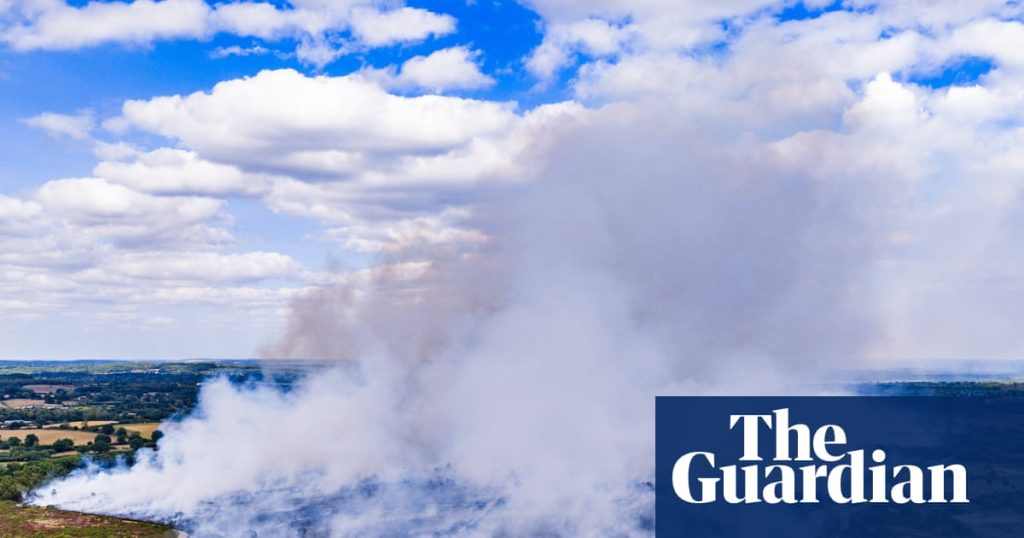Wildfires have devastated more moorland, forests and fields in the UK this year than at any time since records began, putting huge pressure on the country’s fire service, figures show.
The Global Wildfire Information System estimates that by November, wildfires had burned 47,026 hectares (116,204 acres) in 2025 in the UK – the largest area in any year since monitoring began in 2012, and more than double the area burned in the record-breaking summer of 2022.
Now the Fire Brigades Union, backed by climate groups and tax justice organisations, has written to the government asking for long-term investment in the service to help it meet the growing threat from wildfires and floods as the climate crisis worsens.
“There is stark evidence that the UK is dangerously underprepared for the growing threat of wildfires, flooding, and the wider impacts of the climate crisis,’” the letter states. “That is why we are writing to you, as organisations working across public safety, climate action, and economic and social justice ahead of the budget to ask you to make substantial, long-term investment in the UK’s fire and rescue service.”
In August, firefighters were drafted from across the UK to tackle a “relentless” blaze in Dorset because local resources were “shockingly thin on the ground”.
In September, crews in North Yorkshire were joined by farmers, gamekeepers and landowners as they struggled to tackle a huge blaze that burned for weeks on Langdale Moor.
The letter says the fire and rescue service is poorly equipped to deal with incidents like these, having lost nearly 12,000 firefighters since 2010 – one in five posts.
It adds that central government funding has been cut by 30% in cash-terms alone and many services have faced equipment shortages, under-staffed control rooms and insufficient protective gear.
“This under-investment is impacting response to climate change incidents,” it states. “In August of this year, 17 fire and rescue services were drafted in from as far away as Greater Manchester to respond to a wildfire in Holt Heath, Dorset. Many firefighters responding to the incident did not have specialist wildfire PPE, putting firefighters at increased risk of heatstroke, exhaustion, and burns.”
The fire service is also on the frontline in dealing with the increased risk of flooding across the UK.
Last month the Guardian revealed that millions more homes in England, Scotland and Wales will face devastating floods in the coming years, and some towns may have to be abandoned as climate breakdown makes many areas uninsurable.
Sam Harding, a Monmouth firefighter who rescued survivors when storm Claudia hit the area this month, said the fire service was struggling to cope with this new reality.
“The flooding was some of the worst we’ve had in recent years, and required all of our water rescue resources,” he said. “If there had been another flooding incident elsewhere in south Wales requiring water rescue, I don’t know how we would have been able to respond. Government cuts to funding mean the resilience isn’t there to cope with multiple severe incidents like flooding, and we’re seeing more of them.”
The letter, signed by Greenpeace, Tax Justice UK and Friends of the Earth among others, calls on the chancellor to increase government funding “to ensure sufficient firefighters, emergency fire control staff and specialist resources to meet wildfire and flooding risks”.
It adds: “We urge you to act decisively to provide the investment, strategy and leadership that firefighters and the communities they protect urgently need to tackle the realities of climate change.”

